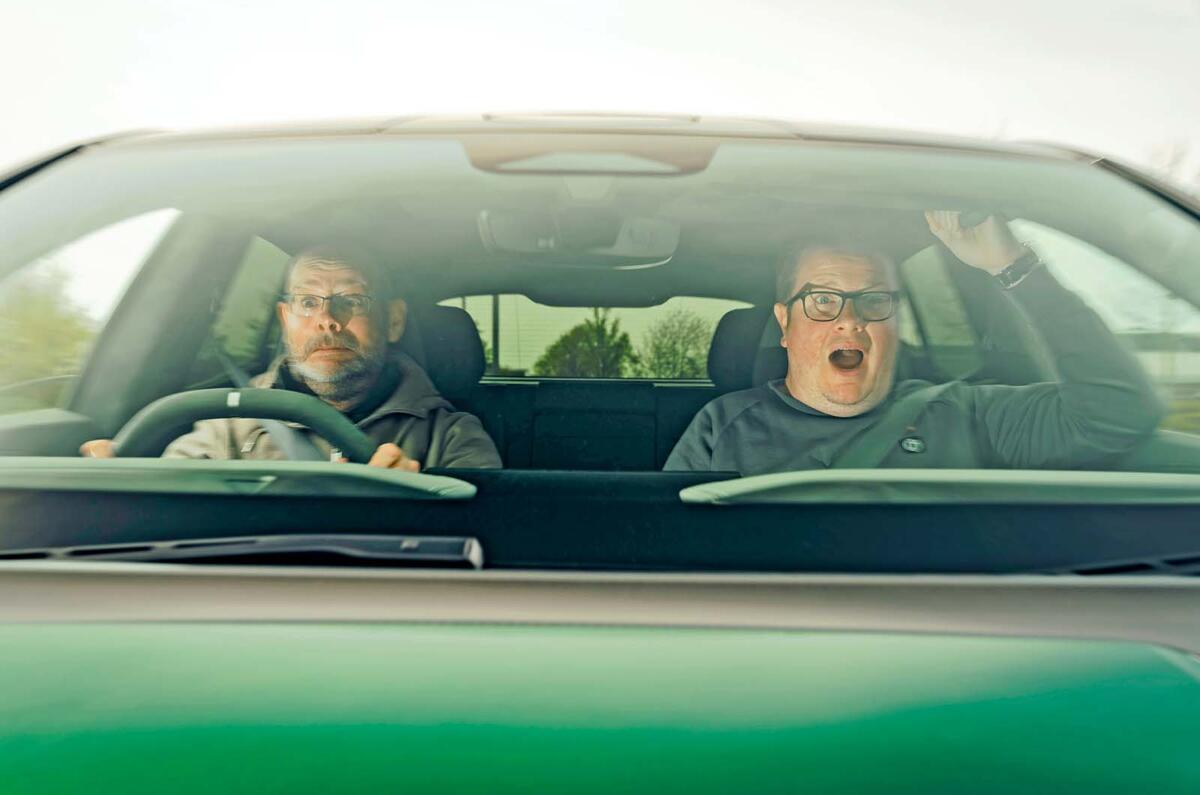With an Audi S6 for weekdays and a Toyota GR Supra for weekends, Philip Thomas could fairly be described as a petrolhead.
At least that was until the IT specialist stunned his neighbours by recently adding a third car to his fleet: a Smart #1.
How the curtains twitched, but this was no ordinary #1. Although the standard model has a Golf GTI-beating 268bhp, Thomas had instead opted for the Brabus variant with 422bhp – around as much as his Audi.
However, where the S6 is a low-slung saloon with performance engineered into it, the Smart #1 Brabus is a compact SUV that, aside from its additional, front-mounted motor, is almost identical to the standard model, right down to its tyres and suspension.
“The Brabus is certainly quick, but it’s not very elegant,” commented our road testers when they got their hands on the model.
Thomas describes the Brabus’s performance as “brutal”. “You can feel the twin turbos in the Audi and the Toyota winding up and the power coming in, but on the Brabus the power is instant,” he says.
“If you aren’t paying attention, you can be doing 80mph in a flash. The fact that there’s no increase in engine noise doesn’t help. It’s very fast, but you can feel the system fussing away as it shares power between the motors, whereas my S6 just feels planted.
"I couldn’t imagine my elderly mum going from her Skoda Fabia to even just the 268bhp Smart #1.”
However, that’s exactly the kind of switch increasing numbers of drivers are making as they migrate to electric cars.
They may not be going straight into 422bhp EVs, but many are trading across, or up, into cars that can comfortably out-accelerate a hot hatch.
Of the new EVs on the forecourt, only a handful, including the Volkswagen ID 5 Pro 174PS, take 10 seconds or longer to accelerate from 0-62mph.






Join the debate
Add your comment
These larger EVs are getting so heavy that soon they might have a dash warning light to alert the driver that they were just involved in an accident, in case they didn't notice.
Yes, and presumably you put that warning light on heavyweight ICE cars like the 2000k kg M5 and 1900k M3.
EV or not EV I've always said it's crazy that only money stops a 17 year old driving a 1000BHP car the day after their test. Whereas the motorbike test requires a staged approach of time and increasing power.
Correct me if I'm wrong ( I am sometimes) but didn't a Conservative government suggest a staggered driving licence and then quietly drop it?, I'll admit I haven't driven or gone into the details of driving an EV,but, like ICE drivers some of us get carried away and drive like loons thinking we're great drivers,so a natural progression from that would assume that some Ev drivers are the same, I guess nothing has changed really, most of us have driven to quickly for no apparent reason,just for fun etc,and, if your funds allow you could be driving a seven figure car the next day after you passed your test.
Catnip you also forgot to mention that most are insured in the name of some elderly relative in a foreign land so the actual uninsured drivers never get a ticket!